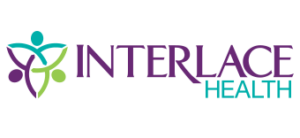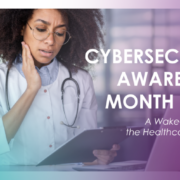Cybersecurity Awareness Month 2024: A Wake-Up Call for the Healthcare Industry

The Decision: Will You Take Action or Take a Chance?
As we move further into the digital age, healthcare organizations are more connected than ever before. Electronic Health Records (EHR), telemedicine platforms, and cloud-based systems have transformed the industry, improving patient care and streamlining operations.
However, this digital transformation has also made healthcare a prime target for cyberattacks. Cybersecurity Awareness Month 2024 serves as a timely reminder of why cybersecurity is not just an IT issue but a critical priority for healthcare providers across the board, also stressing the need for the right downtime solutions to be in place.
Why Healthcare Is a Top Target for Cyberattacks
Healthcare data is highly valuable on the dark web, making hospitals and clinics lucrative targets for cybercriminals. Personal health information (PHI) is more than just data—it’s a goldmine for fraudsters. In fact, PHI can be worth up to 10 times more than credit card information, according to industry studies.
Despite the clear risks, many healthcare organizations remain unprepared for the scale and sophistication of today’s cyber threats. The staggering statistics below highlight why cybersecurity is more important than ever for healthcare in 2024:
- 54% of healthcare organizations have experienced a cyberattack in the past year. (Cisco)
- Phishing attacks surged by 58.2% in 2023. (Zscaler)
- 68% of data breaches involved unintentional errors by healthcare staff. (Verizon)
- Cyberattacks in healthcare increased by 39% in 2023, making it the most targeted industry. (Check Point Research)
With threats growing in frequency and complexity, Cybersecurity Awareness Month is a critical opportunity for healthcare leaders to take action and ensure that every employee is equipped to play their part in keeping patient data safe.
The Human Factor: Why Training is Essential
When people think of cyberattacks, they often imagine sophisticated hackers breaking through firewalls or exploiting vulnerabilities in software. But in reality, the majority of breaches in healthcare result from human error. According to a 2024 Verizon Data Breach Report, 68% of breaches involved unintentional actions by well-meaning staff, such as clicking on phishing emails or using weak passwords.
Phishing is a particularly widespread problem. In fact, phishing attacks increased by 58.2% in 2023, with healthcare workers being prime targets. Attackers prey on busy staff, sending emails that mimic legitimate communications. All it takes is one click for an attacker to gain access to sensitive patient data or hospital systems.
Educating healthcare professionals on cybersecurity risks—especially phishing—must be a top priority. Cybersecurity Awareness Month is the perfect time to initiate training programs that help staff recognize and respond to threats in real-time.
The High Stakes of Healthcare Downtime
The consequences of a cyberattack in healthcare go far beyond financial losses. When systems go down, the impact on patient care can be immediate and severe. Hospitals depend on EHR systems to track patient histories, medications, and lab results. When these systems are compromised, care teams are left scrambling, increasing the risk of medical errors and delayed treatments.
According to a 2023 Ponemon Institute report, the average downtime following a cyberattack costs healthcare organizations about $9,000 per minute. But the real cost is measured in the trust and safety of patients. Delays in critical care can lead to serious harm—or worse.
Ransomware: A Growing Threat to Healthcare
Ransomware attacks—where hackers encrypt critical data and demand payment for its release—are on the rise. Healthcare, with its sensitive data and life-saving systems, is an attractive target. In 2023, the healthcare sector saw a 35% increase in ransomware incidents, according to the IBM Cost of a Data Breach Report.
The stakes are clear: paying a ransom doesn’t just lead to financial losses, it can also cause long-term damage to a hospital’s reputation. Worse, paying a ransom doesn’t guarantee that data will be restored—nearly 20% of organizations that pay a ransom never get their data back.
The Solution: Cybersecurity is Everyone’s Responsibility
The good news is that many of these risks are preventable. While cybersecurity experts play a crucial role in maintaining defenses, every employee has a part to play in keeping patient data and healthcare systems secure.
Here are key steps that healthcare organizations should take to bolster their defenses:
- Regular Training and Awareness Programs
Every healthcare worker should receive regular cybersecurity training that covers phishing, password management, and reporting suspicious activity. Continuous education helps keep cybersecurity top of mind in fast-paced environments like hospitals. - Implement Multi-Factor Authentication (MFA)
Multi-factor authentication is one of the easiest ways to protect sensitive systems. Requiring multiple forms of verification significantly reduces the risk of unauthorized access, even if login credentials are compromised. - Develop a Robust Incident Response Plan
Cybersecurity Awareness Month is the perfect time to review your organization’s incident response plan. Does everyone know what to do in the event of a cyberattack? How quickly can you recover from a breach? Having a clear, well-practiced response plan can mitigate the damage and reduce downtime. - Regularly Update and Patch Systems
Cybercriminals often exploit outdated software and systems. Ensuring that all software is up to date and that patches are applied in a timely manner can close vulnerabilities before attackers can exploit them.
Conclusion: Make Cybersecurity a Priority This October
As Cybersecurity Awareness Month 2024 unfolds, healthcare organizations have an opportunity to assess and strengthen their defenses. The statistics are clear: cyber threats are growing, and healthcare is in the crosshairs. By educating employees, implementing best practices, and staying vigilant, healthcare leaders can protect both their patients and their organizations from the devastating impact of a cyberattack.
Cybersecurity isn’t just about protecting data—it’s about safeguarding patient care, trust, and the future of healthcare. This October, make cybersecurity a priority across your entire organization.
You can’t control when an attack will come, but you can control how prepared you are when it does. Cybersecurity Awareness Month 2024 is your opportunity to strengthen your defenses, educate your team, and protect your patients. This is more than an IT issue—it’s about patient safety and trust. Are you willing to leave those critical factors to chance?
We look forward to continuing these conversations during Cybersecurity Awareness month at the HIMSS Healthcare Cybersecurity Forum October 31 – November 1 in Washington, DC. Are you attending? Let’s schedule a time to connect.
About the Author:

Lauren Ziegler is the Director of Marketing Communications at Interlace Health. She oversees Interlace Health’s corporate communications, content, branding, events, and digital marketing efforts. She brings over fifteen years of experience in helping support technology firm’s marketing and PR efforts. Lauren is passionate about helping the healthcare community understand Interlace’s Health’s value, vision, and commitment to improving experiences for providers, patients, and staff. Find Lauren on LinkedIn.
Kick this month of right. Download our latest White Paper: Not if, but When: Keys to Ensure Business Continuity During EHR Downtime





